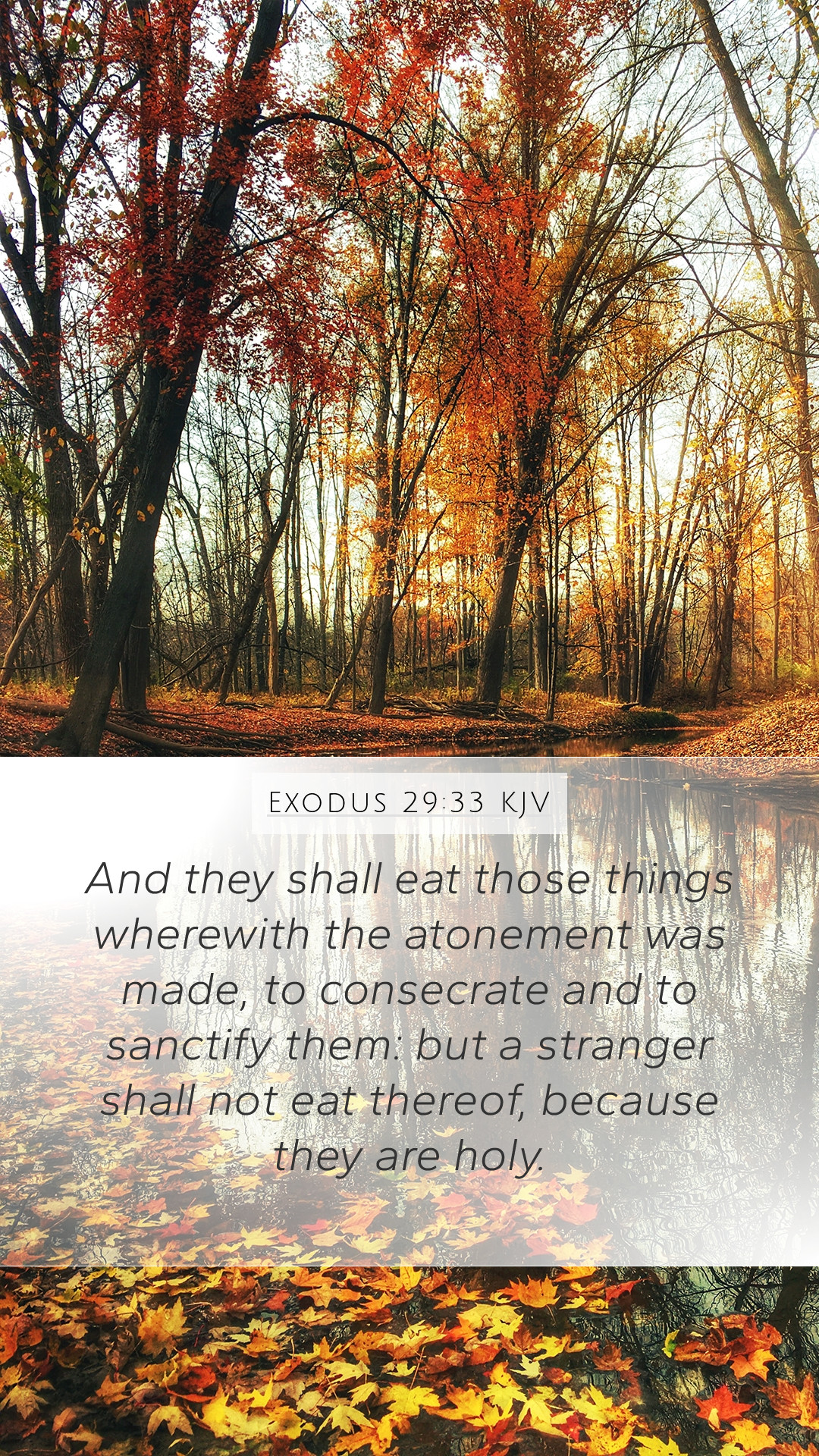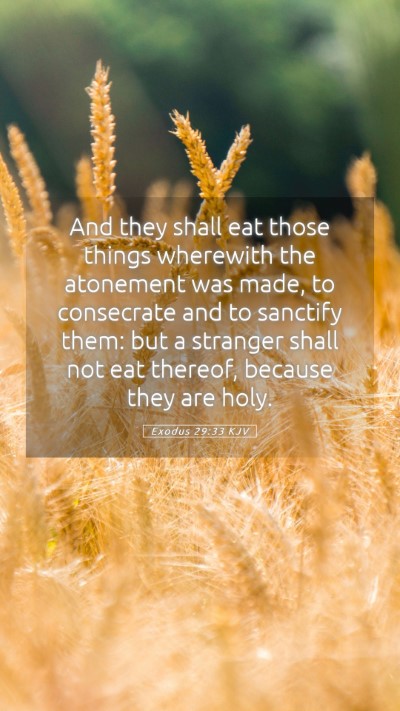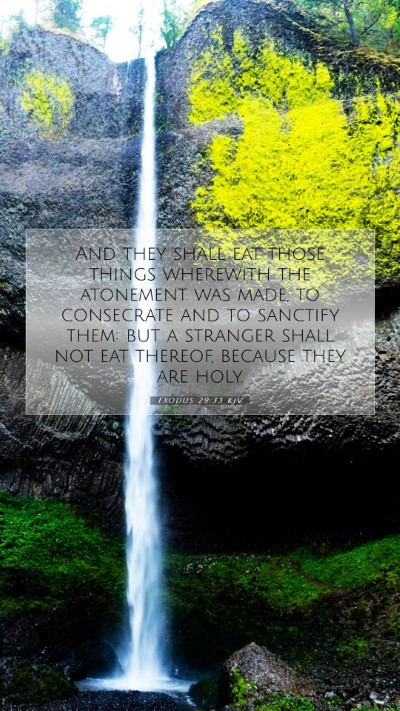Bible Verse Commentary on Exodus 29:33
Verse: Exodus 29:33 - "And they shall eat those things wherewith the atonement was made, to consecrate and to sanctify them: but a stranger shall not eat thereof, because they are holy."
Introduction to the Verse
This verse is part of the instructions given by God to Moses regarding the consecration of the priests of Israel and the offerings that were to be made. It emphasizes the sacredness of the offerings and the significance of holiness in relation to those who partake in them. The term 'stranger' here refers to those outside the priestly line who are not authorized to partake in this sacred rite.
Meaning of the Verse
- Holiness and Consecration: This verse signifies the importance of holiness in worship and the preparations necessary for service to God.
- Separation of the Sacred: The restriction placed on outsiders highlights the exclusive nature of the covenant relationship between God and the Israelites.
- Symbolism of the Offerings: The offerings serve as a means of atonement and signify dedication to God.
Bible Verse Interpretations
According to Matthew Henry, this verse reflects the profound holiness of the ceremonial practices crucial for the priesthood. The priests are required to partake of the offerings as part of their consecration, indicating their unique role before the Lord.
Albert Barnes further elaborates that these provisions are not merely ceremonial but symbolize the spiritual nourishment and connection sustained between God and His chosen servants. The priest's participation links them directly to the atonement process, reinforcing their duties in a sacred manner.
Adam Clarke emphasizes the exclusivity of the priestly role, noting that only those consecrated to God are permitted to partake of these offerings. This serves to remind the community of God's special calling and the respect that must be afforded to the holy things of God.
In-depth Analysis
This verse not only conveys instructions for the priests but also serves as a broader metaphor for spiritual cleanliness and the necessity of purification before God. In understanding Scripture, it is essential to realize the depths of what it means to be 'holy.' The participation in these atonement rituals was a privilege exclusive to the priests, underscoring their function as mediators between God and the people.
Furthermore, in the context of broader scripture analysis, the notion that a 'stranger' cannot partake of these offerings invites reflection on the nature of communion and covenant. In contemporary terms, it can lead us to examine who is included in God's family and the prerequisites for communion with Him.
Application to Daily Life
Understanding this verse prompts us to explore the significance of holiness in our lives today. It encourages a reflection on how we honor sacred things in our worship and personal lives. Just as the priests were set apart, believers today are called to live lives of distinction and purity, showcasing their commitment to God.
Moreover, recognizing the sanctity of the sacrificial system—though fulfilled in Christ—urges modern believers to appreciate the gravity of Christ's work in atoning for sin and the new covenant established through His blood.
Related Scripture Cross References
- Leviticus 10:14 - Regulations concerning the priestly offerings
- Exodus 30:33 - Importance of holiness in offerings
- Hebrews 10:29 - Greater punishment for disregarding the blood of the covenant
Conclusion
In summary, Exodus 29:33 serves as a powerful reminder of the sacredness of God's ordinances, the unique role of the priesthood, and the call to holiness for all believers. Through diligent study and reflection on such verses, individuals can gain profound Bible verse understanding, enrich their Bible verse meanings, and apply biblical truths to their lives.
This commentary encourages deeper exploration in Bible study groups or through online Bible study resources, enhancing one’s ability to interpret Bible verses effectively.


